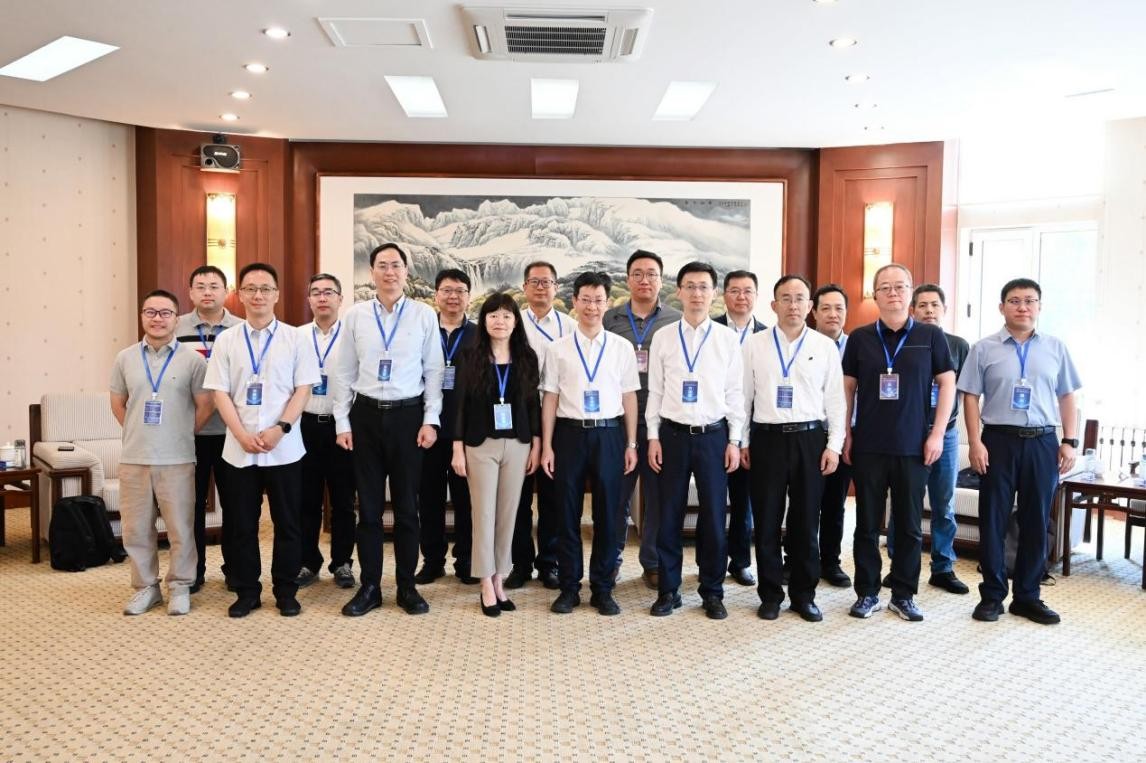
On June 22, 2025, the Forum on High-Quality Development Steering Chinese Modernization, alongside the China Applied Economics Frontier Academic Seminar, was held at Liaoning University (LNU)’s Puhe Campus, in Shenyang. The forum was jointly organized by the Management World journal as academic supporter, LNU’s Economics Division as host institution, and the University’s Business School as executive organizer, with additional support from the Chinese Enterprise Reform and Development Research Institute and LNU’s China Finance Research Institute. Yu Miaojie, President of LNU, delivered the opening remarks, a keynote speech, and a thematic report in a parallel session. Distinguished speakers included professor Wu Chaopeng, the Vice President of Xiamen University, professor Fang Debin, the Vice President of South-Central Minzu University, researcher Wang Qin of Chinese Academy of Social Sciences, and Professor Sun Xiaohua of Dalian University of Technology. The opening ceremony was chaired by Professor Qiu Huanguang, Vice President of LNU.
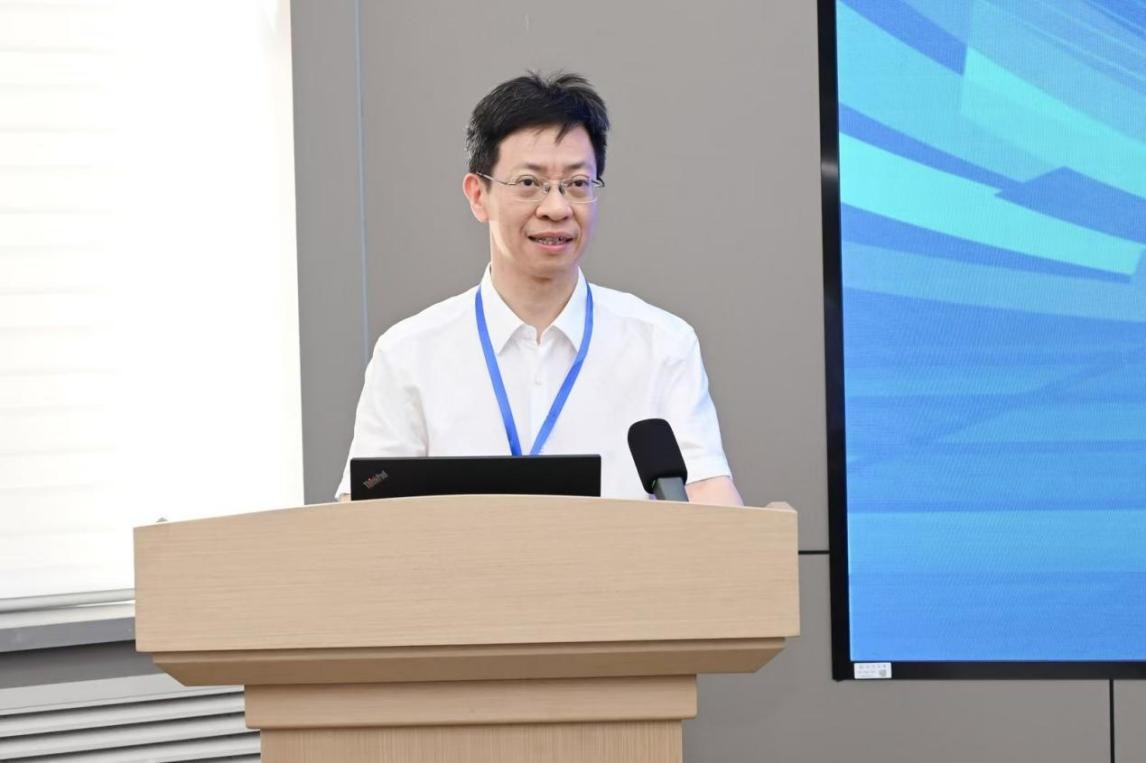
In his welcoming remarks, Yu Miaojie extended warm greetings and sincere appreciation to attending government officials, scholars, industry leaders, and students, while congratulating organizers on launching this significant forum. He highlighted LNU’s recent accomplishments, particularly within its Business School, acknowledging enduring support from academic and business partners. He pointed out that at present, the whole country is studying and implementing the spirit of the Third Plenary Session of the 20th Central Committee of the Communist Party of China and proceeding on a Chinese path to modernization. He stated: “By centering on High-Quality Development Steering Chinese Modernization, our discussions directly align with national strategic priorities, propelling both theoretical innovation and practical solutions for China’s modernization path”. President Yu concluded with confidence in the forum’s success, underscoring its potential to generate actionable insights.
During the plenary session, President Yu delivered a seminal keynote report titled Practicing New Development Concepts: Defining the Essence of Chinese Modernization. His address systematically elucidated how China’s development paradigm focusing on innovation, coordination, green development, openness, and shared prosperity constitutes not merely an operational guideline for high-quality economic growth but fundamentally embodies the distinctive features of Chinese modernization. He also pointed out the necessity to build a unified domestic market in the modernization process of a massive population, to promote reforms in factor markets such as land, eliminate both visible and invisible trade barriers, and use anti-corruption to boost the economy and improve the environment through regulation. “Establish before abolish” should be the principle of green development, he stated. A larger proportion of non-fossil energy should be added to promote differentiated layouts of wind and solar power according to local conditions and solve problems of energy transportation and overcapacity. The goal of common prosperity can be achieved by three stages of poverty alleviation, rural revitalization and common prosperity, using industrial revitalization as the starting point to optimize income structure by raising the bottom (reforming personal income tax thresholds), expanding the middle (enlarging the middle-income group) and adjusting the top (tax incentives for pre-tax donations). The goal should also focus on building an inclusive and beneficial economic globalization in the dimension of peaceful development, expanding from export diversification and service trade expansion to green trade advantages and rules-based institutional opening, deepening cooperation in the Comprehensive and Progressive Agreement for Trans-Pacific Partnership (CPTPP) and the Belt and Road Initiative, and reshaping the multi-polar world pattern.
At the parallel forum on Macroeconomic Growth and Supply-Demand Balance, Yu Maojie delivered a thematic report titled Research on the Loss-Stopping Effect of China’s Welfare Under the Sino-US Trade War: The Role of Processing Trade in Global Value Chains. He pointed out that during the 2018-2019 Sino-US trade war, China’s implementation of zero tariffs on processing trade imports was key to reducing countermeasure costs. Empirical evidence shows this policy reduced China’s welfare losses by 44%, prevented significant declines in imports and exports, and also generated spillover effects on output in certain US sectors. He emphasized that in responding to potential new trade sanctions in 2025, strengthening processing trade should become the core of countermeasure strategies, providing support for building a resilient international trade system.
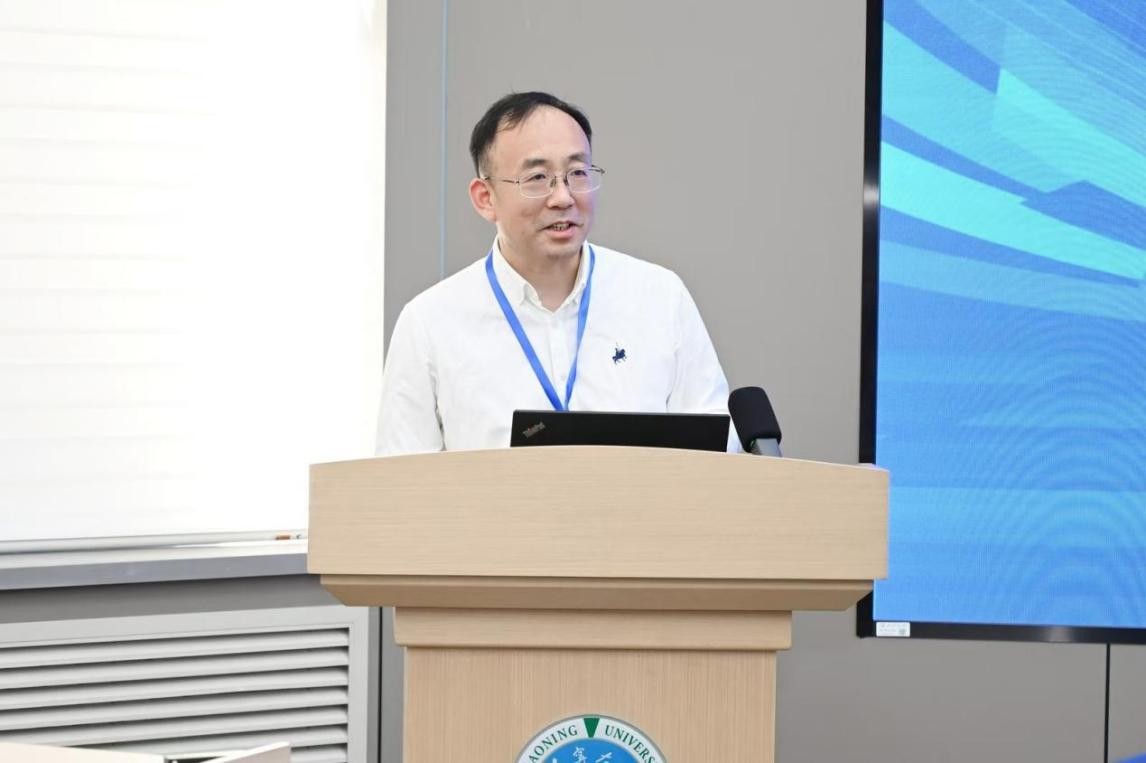
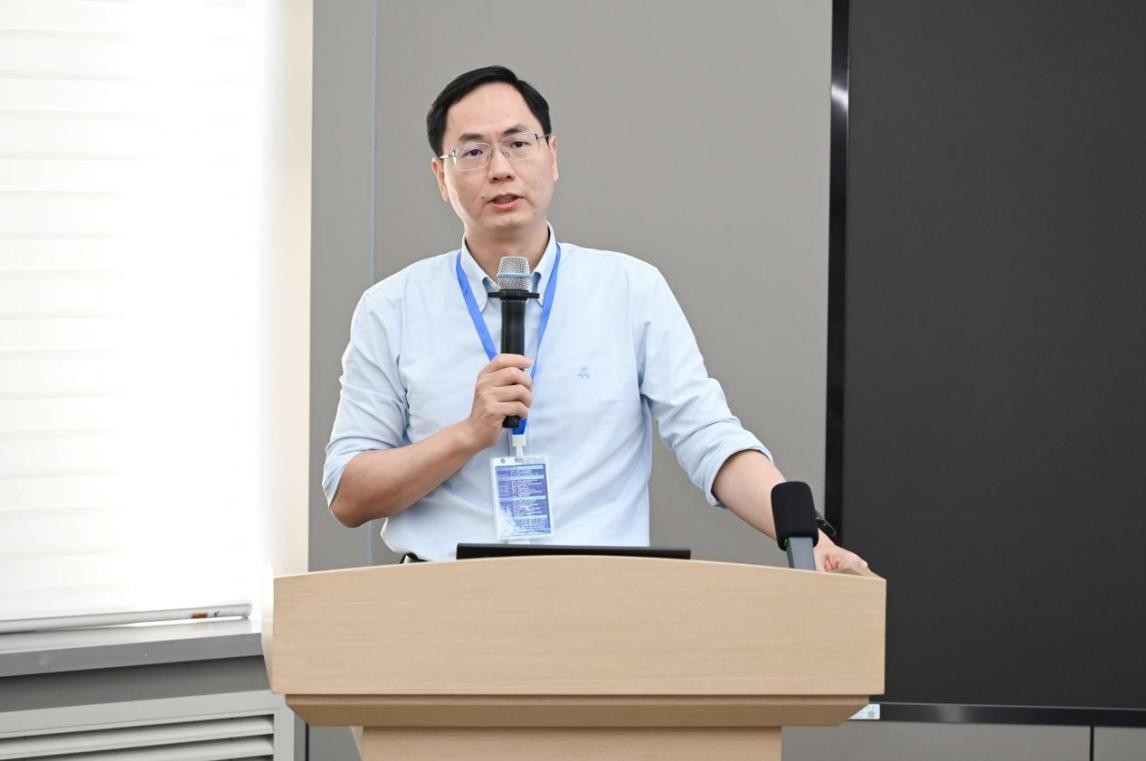
Wu Chaopeng presented an analysis titled ‘From Institutional Incentives to Technological Breakthroughs: The Innovation Logic of Enterprises in China’s Modernization Process’. He noted that the rise of China’s technological innovation has benefited from institutional support from nation, market and corporation, including intellectual property protection and R&D subsidies. From a financial and accounting perspective, he identified four major challenges in corporate innovation: information asymmetry, high risks, principal-agent problems, and intellectual property infringement. Using specific examples, he demonstrated that the allocation efficiency of government R&D subsidies has improved under anti-corruption efforts, with high-performance enterprises seeing significantly increased probabilities of obtaining subsidies. Meanwhile, performance commitment mechanisms may inhibit innovation as companies reduce R&D investments due to valuation adjustment agreements. Through case studies and his own research, Professor Wu elucidated the role of institutions in addressing innovation challenges, providing new perspectives for understanding technological innovation mechanisms within China’s modernization framework.
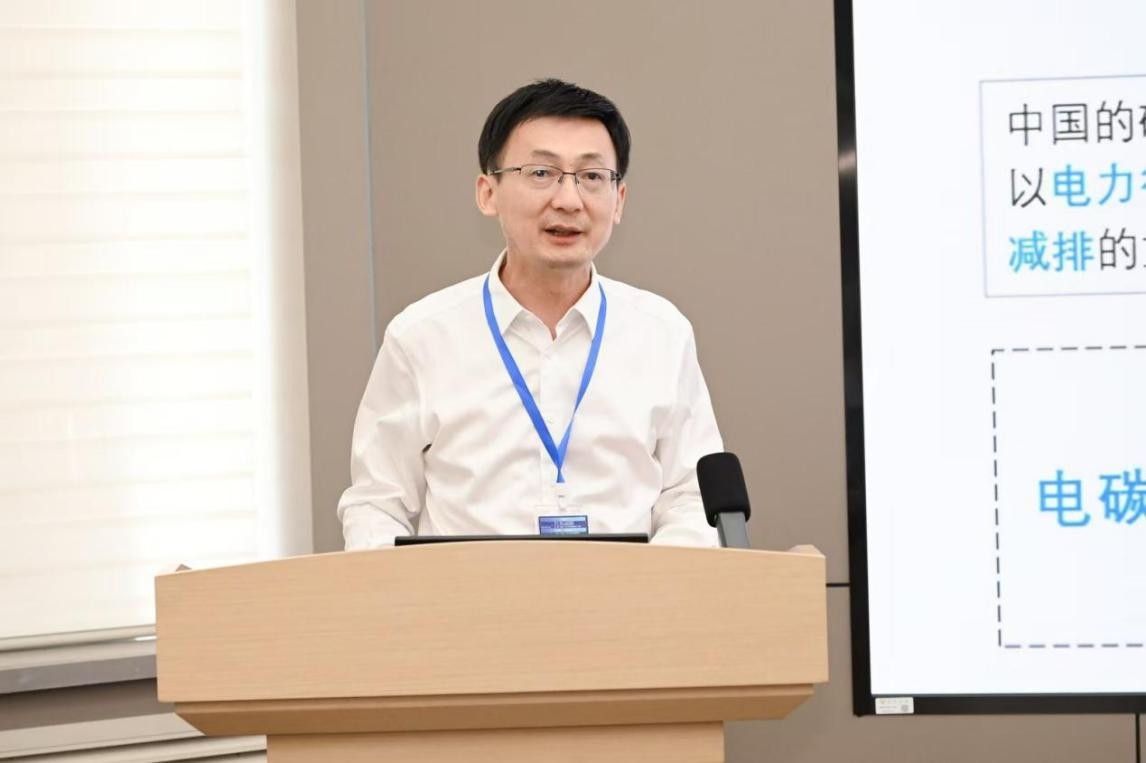
Fang Debin presented an analysis focusing on whether cross-regional power transmission projects can break carbon lock-in, examining the role of ultra-high voltage (UHV) transmission projects in addressing carbon lock-in effects. He demonstrated that structural optimization, factor substitution, and green technology effects can significantly reduce urban carbon lock-in levels, with particularly notable impacts on technological lock-in, social behavioral lock-in, and infrastructure lock-in - effects that are more pronounced in DC and clean energy transmission projects. The research confirmed UHV power transmission generates spatial spillover effects that reduce carbon lock-in in neighboring cities. These findings have been implemented in Hubei Province’s integrated 'electricity-carbon-finance' tri-market mechanism, facilitating the combination of green electricity trading with carbon allowance offsets and informing relevant policy formulations. Professor Fang emphasized that accelerating UHV infrastructure development, optimizing spatial distribution, expanding renewable energy capacity, and enhancing cross-regional cooperation could provide practical pathways for achieving China’s dual carbon goals.
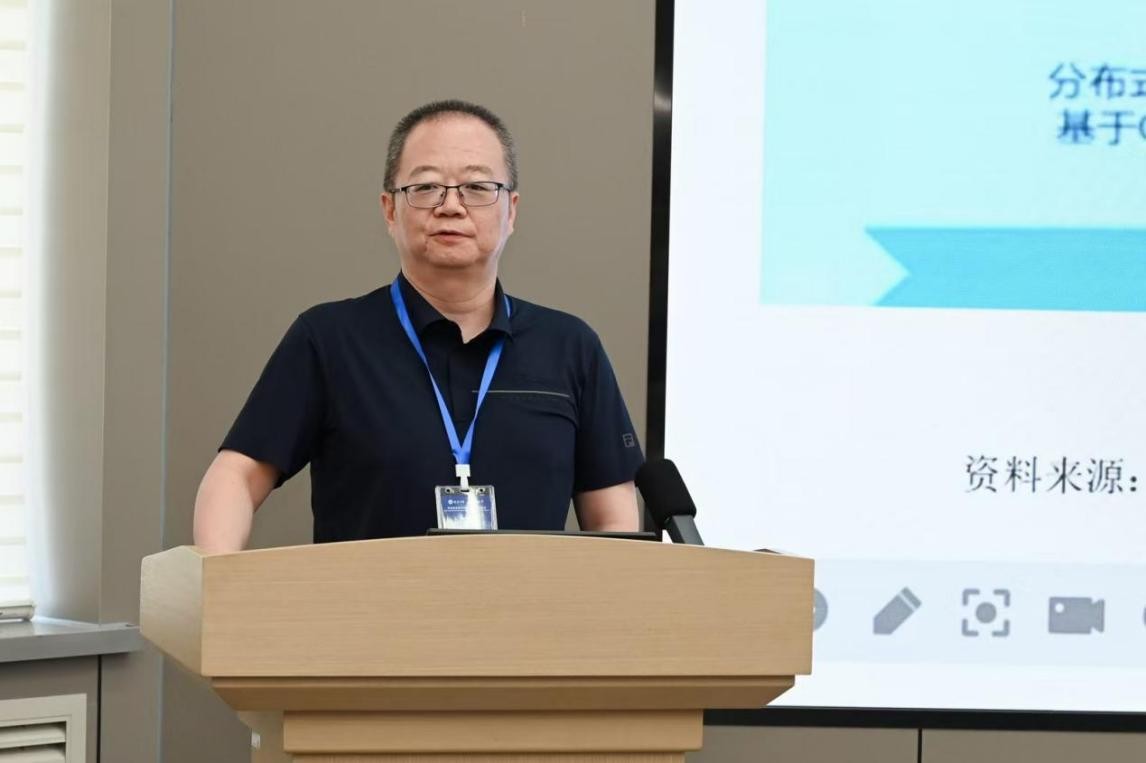
Wang Qin shared his reflections on enterprise development under Chinese modernization under the title ‘The Path of Chinese Modernization and Enterprise Strategic Choices for the 15th Five-Year Plan’. He pointed out that Chinese modernization contains connotations such as resource conservation and common prosperity, and that enterprises need to resonate in sync by cultivating new quality productive forces. The current development environment for enterprises is undergoing dramatic changes, with technology advancing exponentially - accelerated application of digital technologies, AI reshaping business order, and new energy vehicle architecture transformations. Moderate population aging also presents challenges, based on which he elaborated on the technological and demographic changes in the enterprise development environment. During the 15th Five-Year Plan period, enterprises need to cultivate new quality productive forces and clarify strategic propositions from three aspects: value positioning, activity restructuring, and coordinated adaptation, to address new changes in enterprise development strategies and achieve new breakthroughs in innovative development.
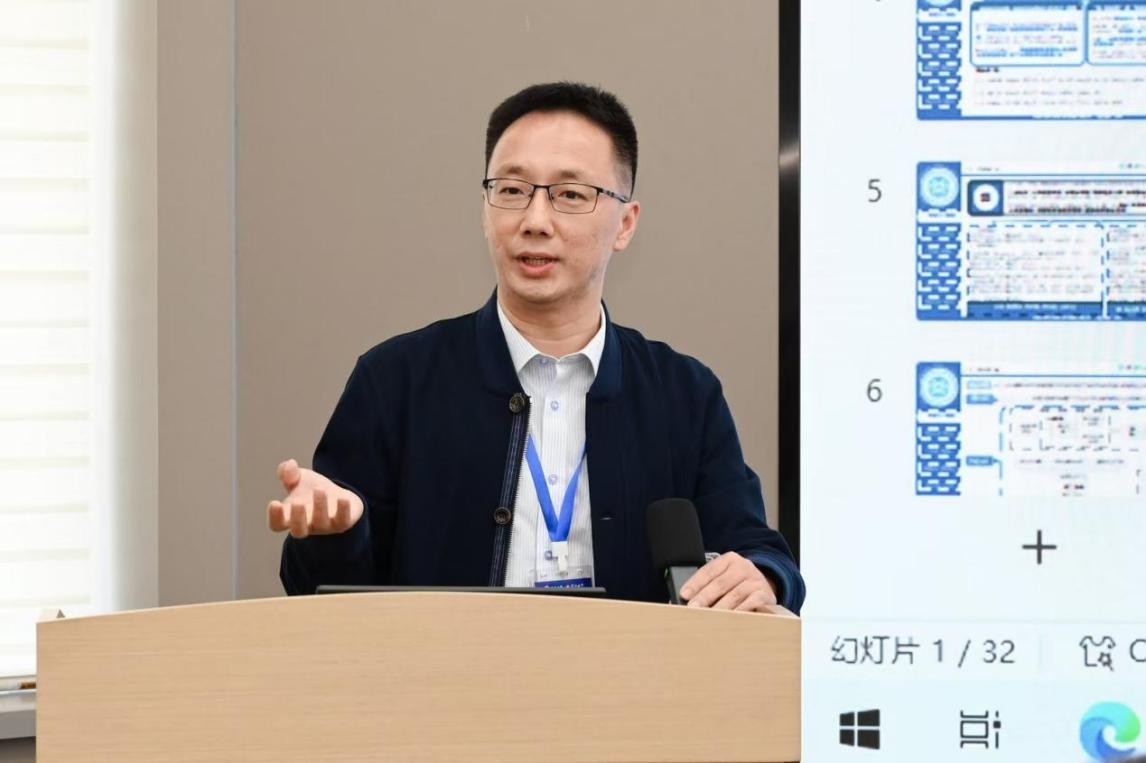
Sun Xiaohua resented a report on research on scientific and technological innovation and industrial upgrading strategies driven by AI large models, detailing the significant enabling effects of public data sharing reforms on the real economy. He stated that the public data sharing reforms have promoted embedded services that extend manufacturing value chains, while showing negligible impact on mixed services unrelated to core products. He emphasized that improved digital access and upgraded applications constitute the primary mechanisms through which public data sharing empowers the real economy, where the embedded service integration resulting from public data sharing has enhanced enterprises’ cost-plus rates, green innovation levels, and total factor productivity. This all fosters the formation of new, quality productive forces. The digital ecosystem comprises digital infrastructure, digital human capital and digital development policies, playing a positive moderating role. Sun Xiaohua stated that this research provided important insights for both government and enterprises, offering theoretical support and practical pathways for deeper integration between the digital and real economies.
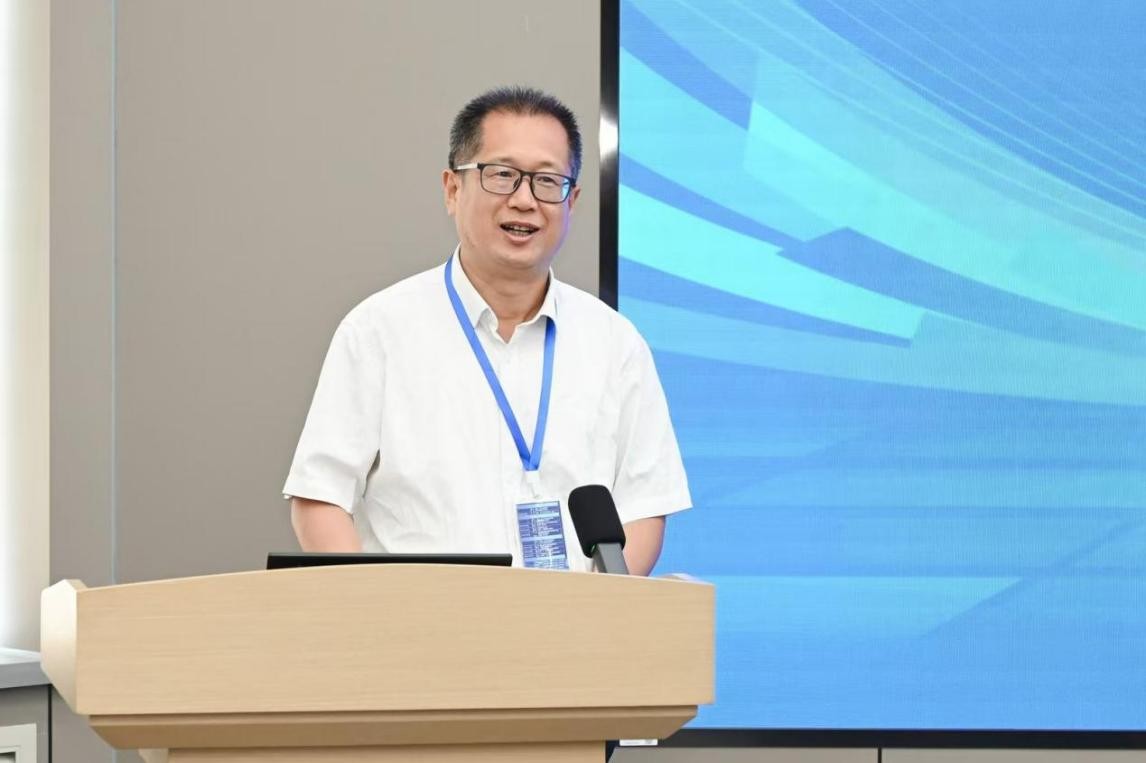
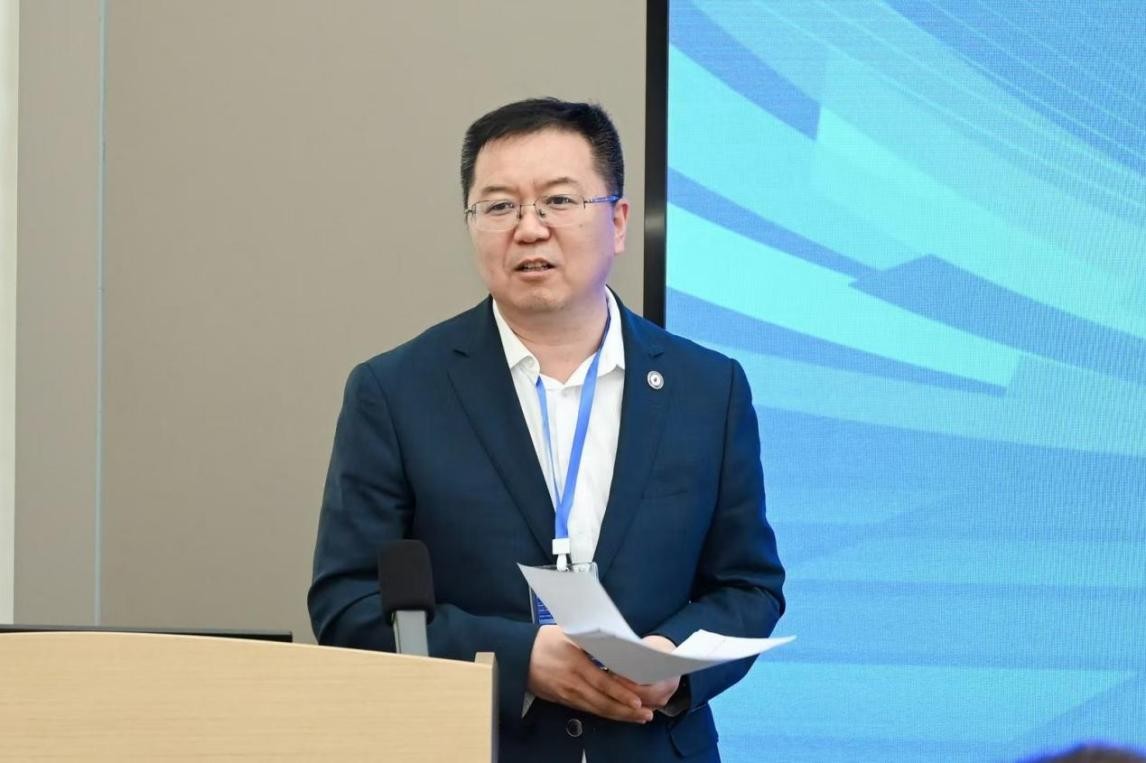
Wang Weiguang, Deputy Director of the School of Economics of Liaoning University, and Han Liangliang, Dean of the Business School of Liaoning University, presided over the report session.
In the afternoon, parallel forums were held at the Lixing Building of Puhe Campus. The forums featured five parallel sessions: ‘Macroeconomic Growth and Supply-Demand Balance’, ‘Labor Allocation and Social Equity’, ‘Entrepreneurship and Innovation’, ‘Digital Economy and Industrial Upgrading’, and ‘Green Transition and Sustainable Development’. Since the call for papers was announced, the conference organizers collected over 200 academic submissions. After expert review and selection, 30 papers were ultimately recommended for presentation at the parallel forums. Participating scholars and experts actively engaged in discussions across various sessions, providing suggestions and recommendations to improve the presented papers, thereby helping to further enhance their quality.
The forum was attended by over 100 faculty and student representatives from institutions including the Management World journal, Tsinghua University, the Chinese Academy of Social Sciences, Sun Yat-sen University, Renmin University of China, Xiamen University, South-Central Minzu University, Beijing Normal University, Northeast Normal University, Sichuan University, East China Normal University, Central University of Finance and Economics, Dongbei University of Finance and Economics, Jinan University, Shandong University, Jiangxi University of Finance and Economics, Nanjing Audit University, Hunan University, and Liaoning University.
